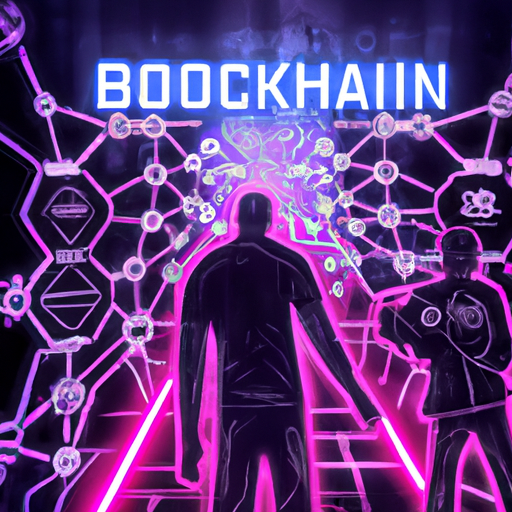Introduction to Blockchain Technology
In the realm of information technology, blockchain technology is a revolutionary innovation that promises to redefine the landscape of digital transactions and data management. This digital ledger technology leverages decentralization, cryptography, and immutable ledger characteristics that shape its unique aspects, setting it apart from traditional databases and conventional record-keeping systems.
Decentralization and Distributed Networks
Unlike conventional record-keeping systems which are centralized and managed by a single authority, blockchain utilizes a distributed network of computers, known as nodes. This decentralization is the cornerstone of blockchain’s robust security features and peer-to-peer transactions. It eliminates the potential for data tampering, enhances data privacy, and prevents the possibility of a single point of failure, thus creating a trustless system.
Cryptography and Security
Blockchain technology employs advanced cryptographic hash functions that ensure data integrity and confidentiality. Each transaction in a blockchain is encrypted and linked to the previous one, which adds an additional layer of security. This inherent encryption process in blockchain solutions enhances data protection, a significant upgrade over conventional record-keeping methods.
Furthermore, blockchain’s transparency ensures that all transactions can be traced back, promoting accountability and trust within the system, thereby reducing the risk of fraud.
Verification Process and Consensus Mechanisms
The verification process in the blockchain is managed through consensus mechanisms like Proof of Work (PoW) or Proof of Stake (PoS). These mechanisms ensure the authenticity of transactions, offering a more secure verification process compared to conventional systems, which often involve central authorities or intermediaries.
Smart Contracts and Blockchain Applications
Blockchain solutions also leverage smart contracts – self-executing contracts with terms of agreement directly written into lines of code. These allow for versatile blockchain applications in various sectors including business, supply chain, and financial services. Smart contracts streamline processes, enhancing transaction speed and efficiency in comparison to conventional systems.
Different blockchain networks can communicate and transact with each other, a factor that sets it apart from isolated conventional systems. Developers are continually working on resolving these challenges to ensure blockchain solutions remain efficient.
Real-Time Verification
One of the critical advantages of blockchain solutions over traditional databases is the real-time verification feature. This real-time verification mechanism reduces the processing time, making blockchain more efficient than traditional systems, which often require lengthy verification procedures.
Data Storage
Blockchain has revolutionized data storage with its distributed ledger structure. Unlike conventional databases that store data in a central location, blockchain splits the data across multiple nodes in the network, creating a decentralized data storage system. This not only enhances data security but also ensures data redundancy and resilience against data loss.
Transparency vs Confidentiality
Transparency and confidentiality are two contrasting concepts in blockchain technology. Blockchain’s public ledger provides a high level of transparency, as every transaction can be traced back to its origin.
The balance between transparency and confidentiality sets blockchain solutions apart from traditional record-keeping systems. This is in stark contrast to traditional systems that often require intermediaries for transaction validation. Through the use of smart contracts and consensus mechanisms, blockchain can validate and record transactions without third-party intervention, increasing efficiency and reducing costs.
Central Authority in Traditional Systems
The role of a central authority is pivotal in traditional databases.
Fraud Prevention in Blockchain
Blockchain’s immutable ledger, cryptographic security, and decentralized nature make it highly resistant to fraud.
Traditional Databases vs Blockchain
Comparing traditional databases with blockchain highlights the revolutionary aspects of the latter. Where traditional databases are centralized, prone to data manipulation, and depend on intermediaries for transactions, blockchain is decentralized, secure, transparent, and operates independently of intermediaries.
Cryptocurrencies, powered by blockchain, disrupt the conventional financial landscape by removing intermediaries, ensuring faster transactions, and providing enhanced security.
Concluding Thoughts: Disruption by Blockchain
Blockchain technology sets the stage for significant disruption in various industries. Its security features, decentralization, and versatility present a marked improvement over conventional record-keeping solutions. Blockchain solutions offer not just an alternative, but an advanced and potentially superior method of managing digital transactions and data records. While it’s still in its evolving phase, there’s no doubt that blockchain technology will continue to shape our digital future in unimaginable ways.
Here are some relevant links for further reading on blockchain technology:
- Mark Yusko Speaks Out Against SEC’s Lawsuits: Is Binance’s Future in Jeopardy?
- Crypto Market Update: Ethereum and Cardano Surge, Bitcoin and Polygon Record Gains, Solana Shows Promising Growth, but Pepe’s Trading Volume Drops.
- Blockchain Shake-Up: SEC Lawsuits Against Binance and Coinbase, Bitget’s AI Plan, OKX Trading and Binance’s Partnership for Crypto Security
- Altcoins Plunge in Crypto Market Turmoil: Which Coins Survived the SEC Crackdown?
- Beyond Bitcoin: How TTML Stock Price, Financial Analysis, and Shareholder Information Impact India’s Market Capitalization
- Unveiling the Latest Altcoin Buzz: How IEX Share Price and Indian Energy Exchange Ltd Stock Trends are Influencing NSE Market Fluctuations
- Cryptocurrency Market Volatility Continues: Altcoins Drop, Binance Struggles, SEC Looms
- Breaking Down Ethereum’s Price and Bitcoin’s Surge: Why Investors are Flocking to Tradecurve’s Presale Phase for 50% ROI
- Revolutionizing Cross-Chain Trading: THORSwap and WOOFi’s Partnership Unlocks Enhanced Avalanche Liquidity
- Revolutionizing Education with NFL All Day NFTs: The Future of Digital Collectibles and Blockchain Technology

